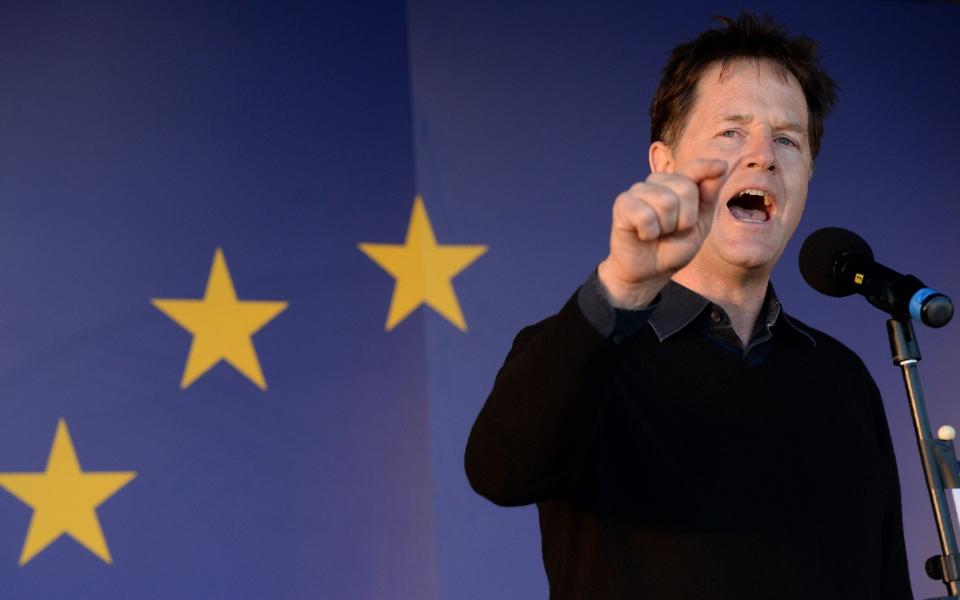Nick Clegg hits back at calls for Facebook to be broken up

Nick Clegg has hit back at calls for Facebook to be broken up after claiming that critics should focus on “getting the rules of the internet right” and not “dismantling successful American companies”.
In an op-ed for the New York Times, the former deputy Prime Minister and Facebook’s head of global affairs responded directly to Chris Hughes, a co-founder of Facebook, who took aim at the company earlier this week.
Mr Hughes said that his fellow founder Mark Zuckerberg had created a “leviathan” of a company and its “monopoly” needed to be broken up.
Facebook operates the world’s largest online social network with more than 2bn users, and also owns popular photo-sharing app Instagram and messaging services WhatsApp and Messenger. Its string of acquisitions has left consumers with few alternatives for online communication, Hughes claimed.
The company has faced a torrent of criticism over the past year, particularly after the Cambridge Analytica episode embroiled the company in a privacy scandal that left the data of 87m users exposed.
Mr Hughes also said that Facebook needed to be held to greater account as its power has become “unprecedented” in scale and could unwittingly be used to be a significant influence on global elections.

Sir Nick retaliated to the comments by saying that “what matters is not size but rather the rights and interests of consumers”, as well as the company’s accountability to governments and legislators.
“Mr Hughes is right that companies should be held accountable for their actions,” he said.
“But the challenges he alludes to, including election interference and privacy safeguards, won’t evaporate by breaking up Facebook or any other big tech company.”
Sir Nick admitted that if people were to write “the rules for the internet from scratch today”, they wouldn’t want to leave many crucial social and political questions in the hands of private companies.
“Big in itself isn’t bad. Success should not be penalized. Our success has given billions of people around the globe access to new ways of communicating,” he said.
“Facebook shouldn’t be broken up — but it does need to be held to account.”

 Yahoo Finance
Yahoo Finance 